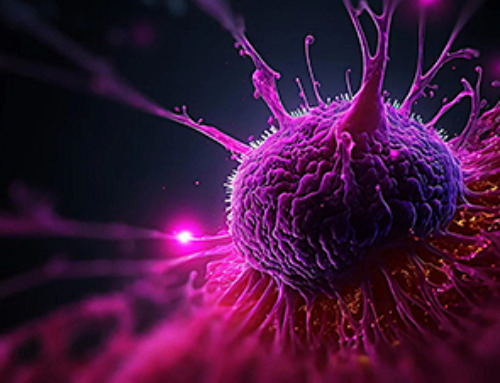A new research has revealed a possible connection between human brain and cosmos on a quantum scale.
Introduction: Connection between human brain and cosmos
The human brain, with its intricate networks of neurons, has long been a subject of fascination and mystery. Concurrently, the cosmos, with its vastness and complexity, has intrigued scientists and philosophers for centuries.
Recent research has begun to explore the possible connection between human brain and cosmos might be connected on a quantum scale. This article will delve into the research paper titled “Quantum transport in fractal networks” and discuss its implications for our understanding of the connection between human brain and cosmos.
Quantum Transport in Fractal Networks: The Research
The research paper “Quantum transport in fractal networks” explores the connection between human brain and cosmos through fractal networks. Fractals are self-replicating patterns that can be found in various scales, both in nature and the universe. This study investigates the quantum transport properties of fractals, specifically focusing on how electrons and energy move through these networks.
The authors demonstrate that quantum transport in fractal networks exhibits unique behavior, which could have significant implications for our understanding of the connection between human brain and cosmos.
Implications for Understanding the Brain-Cosmos Connection
The findings of the research paper provide valuable insights into the possible connection between the brain and the cosmos on a quantum scale. The unique behavior exhibited by quantum transport in fractal networks could potentially explain some of the brain’s complex functions and its connection to the universe. For example, the fractal nature of both the brain’s neural networks and the cosmic structure might indicate that they are governed by similar principles. Understanding these connections could lead to a better understanding of the fundamental mechanisms that underlie consciousness, cognition, and perception.
Potential Applications and Future Directions
The research on quantum transport in fractal networks has several potential applications and opens up new avenues for future studies. For instance, this understanding could have implications for developing novel technologies that harness the power of quantum mechanics, such as quantum computing or quantum communication.
Short Summary
The article titled “Scientists Discover Possible Human Brain-Cosmos Connection on Quantum Scale” explores the intriguing connection between human brain and cosmos. The research suggests that the human brain may have intricate quantum interactions with the universe, potentially influencing our perception of reality.
The study, conducted by a team of scientists, delves into the realm of quantum mechanics and consciousness. It discusses how certain quantum phenomena, such as entanglement and superposition, could be harnessed by the brain to facilitate cognitive processes and perception.
The researchers propose that the brain’s neurons, which communicate through electrical impulses, may also exhibit quantum behavior. This hypothesis raises the possibility that the brain’s quantum interactions extend beyond the classical neural processes, influencing our subjective experiences and understanding of the world.
The article emphasizes the speculative nature of these findings, highlighting that further research and evidence are needed to validate the brain-cosmos quantum connection. The study serves as a stepping stone in exploring the mysterious relationship between consciousness and the fundamental fabric of the universe.
Overall, the article presents an intriguing perspective on the potential quantum-scale connections between the human brain and the cosmos, sparking curiosity and encouraging further exploration in the field of quantum neuroscience.
Additionally, the study of fractal networks could lead to advancements in our understanding of complex systems, such as the human brain or the cosmos, and how they function at their most fundamental level.
Conclusion: Expanding Our Understanding of the Universe
The research article “Quantum transport in fractal networks” presents a fascinating exploration of the potential connection between the brain and the cosmos on a quantum scale. It highlights the unique properties of quantum transport in fractal networks and their possible implications for understanding the brain-cosmos connection. By further investigating these connections, we can expand our understanding of the universe and the nature of reality itself, potentially paving the way for new groundbreaking technologies and insights into the mysteries of the brain and the cosmos.
News
Scientists reveal how exercise protects the brain from Alzheimer’s
Researchers at UC San Francisco have identified a biological process that may explain why exercise sharpens thinking and memory. Their findings suggest that physical activity strengthens the brain's built in defense system, helping protect [...]
NanoMedical Brain/Cloud Interface – Explorations and Implications. A new book from Frank Boehm
New book from Frank Boehm, NanoappsMedical Inc Founder: This book explores the future hypothetical possibility that the cerebral cortex of the human brain might be seamlessly, safely, and securely connected with the Cloud via [...]
Deadly Pancreatic Cancer Found To “Wire Itself” Into the Body’s Nerves
A newly discovered link between pancreatic cancer and neural signaling reveals a promising drug target that slows tumor growth by blocking glutamate uptake. Pancreatic cancer is among the most deadly cancers, and scientists are [...]
This Simple Brain Exercise May Protect Against Dementia for 20 Years
A long-running study following thousands of older adults suggests that a relatively brief period of targeted brain training may have effects that last decades. Starting in the late 1990s, close to 3,000 older adults [...]
Scientists Crack a 50-Year Tissue Mystery With Major Cancer Implications
Researchers have resolved a 50-year-old scientific mystery by identifying the molecular mechanism that allows tissues to regenerate after severe damage. The discovery could help guide future treatments aimed at reducing the risk of cancer [...]
This New Blood Test Can Detect Cancer Before Tumors Appear
A new CRISPR-powered light sensor can detect the faintest whispers of cancer in a single drop of blood. Scientists have created an advanced light-based sensor capable of identifying extremely small amounts of cancer biomarkers [...]
Blindness Breakthrough? This Snail Regrows Eyes in 30 Days
A snail that regrows its eyes may hold the genetic clues to restoring human sight. Human eyes are intricate organs that cannot regrow once damaged. Surprisingly, they share key structural features with the eyes [...]
This Is Why the Same Virus Hits People So Differently
Scientists have mapped how genetics and life experiences leave lasting epigenetic marks on immune cells. The discovery helps explain why people respond so differently to the same infections and could lead to more personalized [...]
Rejuvenating neurons restores learning and memory in mice
EPFL scientists report that briefly switching on three “reprogramming” genes in a small set of memory-trace neurons restored memory in aged mice and in mouse models of Alzheimer’s disease to level of healthy young [...]
New book from Nanoappsmedical Inc. – Global Health Care Equivalency
A new book by Frank Boehm, NanoappsMedical Inc. Founder. This groundbreaking volume explores the vision of a Global Health Care Equivalency (GHCE) system powered by artificial intelligence and quantum computing technologies, operating on secure [...]
New Molecule Blocks Deadliest Brain Cancer at Its Genetic Root
Researchers have identified a molecule that disrupts a critical gene in glioblastoma. Scientists at the UVA Comprehensive Cancer Center say they have found a small molecule that can shut down a gene tied to glioblastoma, a [...]
Scientists Finally Solve a 30-Year-Old Cancer Mystery Hidden in Rye Pollen
Nearly 30 years after rye pollen molecules were shown to slow tumor growth in animals, scientists have finally determined their exact three-dimensional structures. Nearly 30 years ago, researchers noticed something surprising in rye pollen: [...]
How lipid nanoparticles carrying vaccines release their cargo
A study from FAU has shown that lipid nanoparticles restructure their membrane significantly after being absorbed into a cell and ending up in an acidic environment. Vaccines and other medicines are often packed in [...]
New book from NanoappsMedical Inc – Molecular Manufacturing: The Future of Nanomedicine
This book explores the revolutionary potential of atomically precise manufacturing technologies to transform global healthcare, as well as practically every other sector across society. This forward-thinking volume examines how envisaged Factory@Home systems might enable the cost-effective [...]
A Virus Designed in the Lab Could Help Defeat Antibiotic Resistance
Scientists can now design bacteria-killing viruses from DNA, opening a faster path to fighting superbugs. Bacteriophages have been used as treatments for bacterial infections for more than a century. Interest in these viruses is rising [...]
Sleep Deprivation Triggers a Strange Brain Cleanup
When you don’t sleep enough, your brain may clean itself at the exact moment you need it to think. Most people recognize the sensation. After a night of inadequate sleep, staying focused becomes harder [...]





















